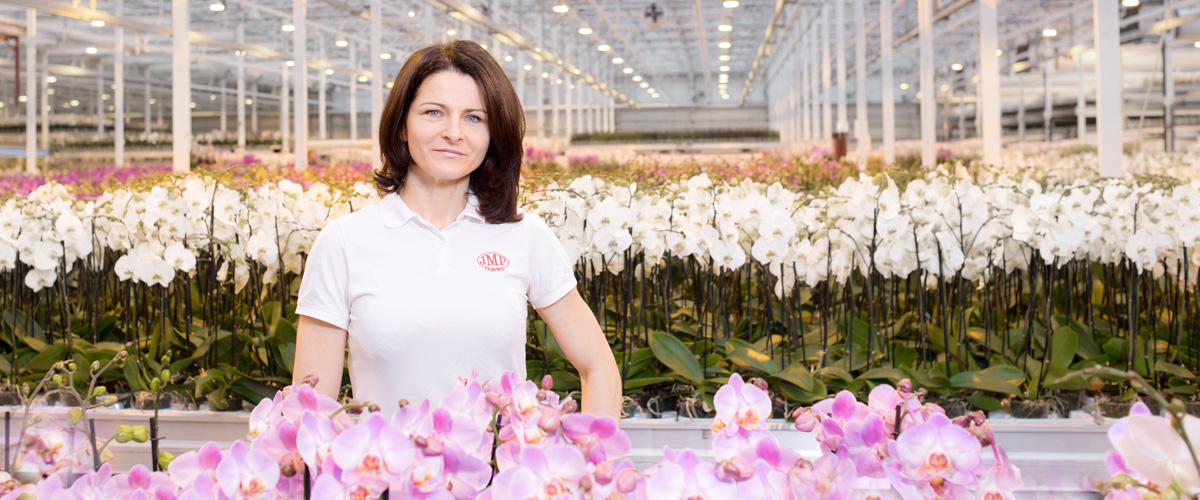It's been 40 years!
About Us
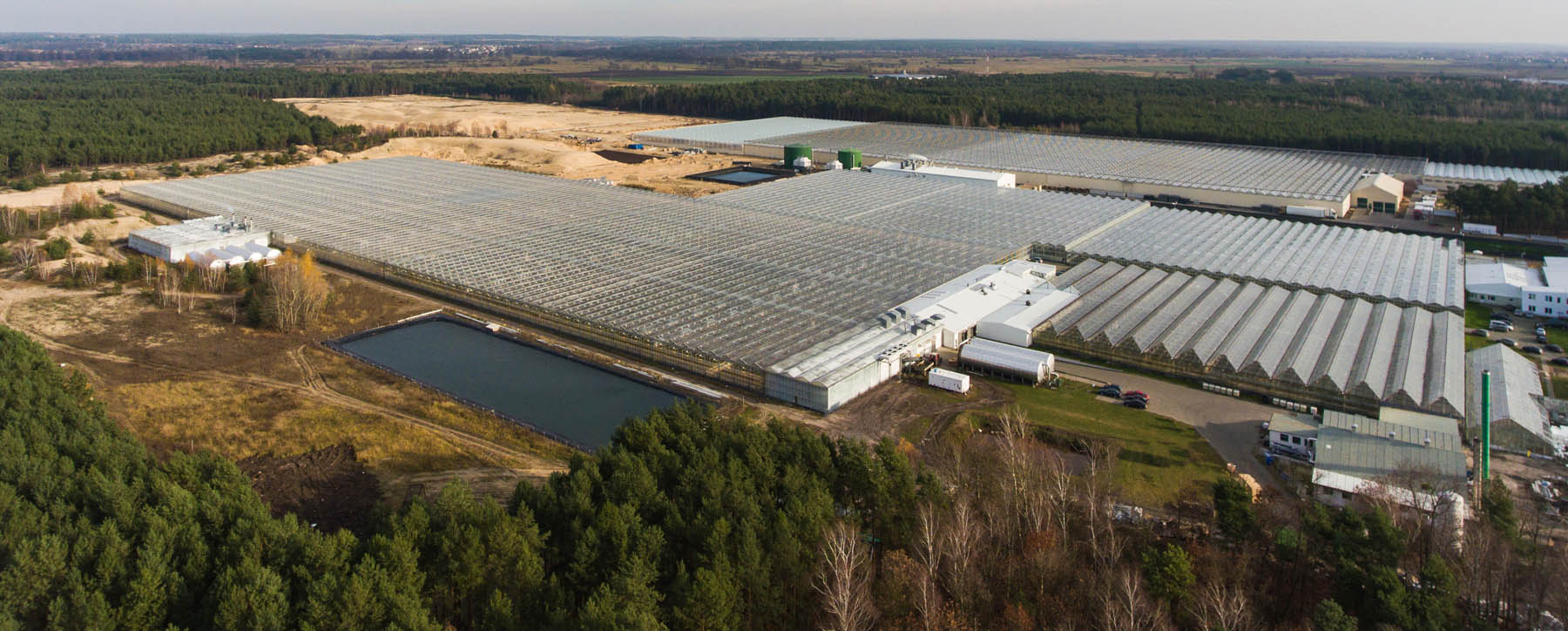
About Us
JMP Flowers cultivates over 50 different varieties of roses in an area of 6 ha, along with 40 anthurium varieties in 0.7 ha. Moreover, it grows 200 varieties of orchids with a cultivation area of 11 ha.
JMP Flowers zarządza również największą w Polsce, własną hurtową siecią handlową, która posiada łącznie 15 reprezentacyjnych filii, zaopatrujących w świeże kwiaty najlepsze, polskie kwiaciarnie. Dla wygody klientów każda z filii dysponuje specjalistycznymi autami dostawczymi, którymi na zasadzie van-sellingu dostarczane są kwiaty w promieniu do 50 km od filii – zawsze świeże i zdrowe, aby pielęgnować marzenia klientów.
JMP Flowers posiada także spółkę w Wiedniu, która obsługuje przede wszystkim rynek austriacki, czeski, słowacki, niemiecki i węgierski oraz spółkę w Moskwie, która rozwija sprzedaż na rosnącym rynku Federacji Rosyjskiej.
Już od lat JMP Flowers to stabilne i bezpieczne miejsce pracy dla 240 pracowników aż z 9 krajów. JMP Flowers również w tym zakresie udowadnia, że polskie, rodzinne firmy potrafią skutecznie działać w skali światowej, przyciągając do pracy młodych, utalentowanych ludzi z całego świata.
Ze względu na skalę sprzedaży firma ze Stężycy stała się także istotnym importerem i eksporterem roślin doniczkowych, zieleni ciętej i ceramiki. Własna, profesjonalna flota transportowa umożliwiająca precyzyjną kontrolę parametrów przewozu, rozbudowa centrum logistycznego oraz call center ma umożliwić JMP Flowers zwiększenie wachlarza usług, wolumenu sprzedaży oraz szybszą i sprawniejszą realizację zamówień.
Podążając za rodowym duchem innowacyjności, na terenie firmy powstaje zaawansowane technologicznie Centrum Badawczo-Rozwojowe, które ma w planach realizację ambitnego planu badawczego.
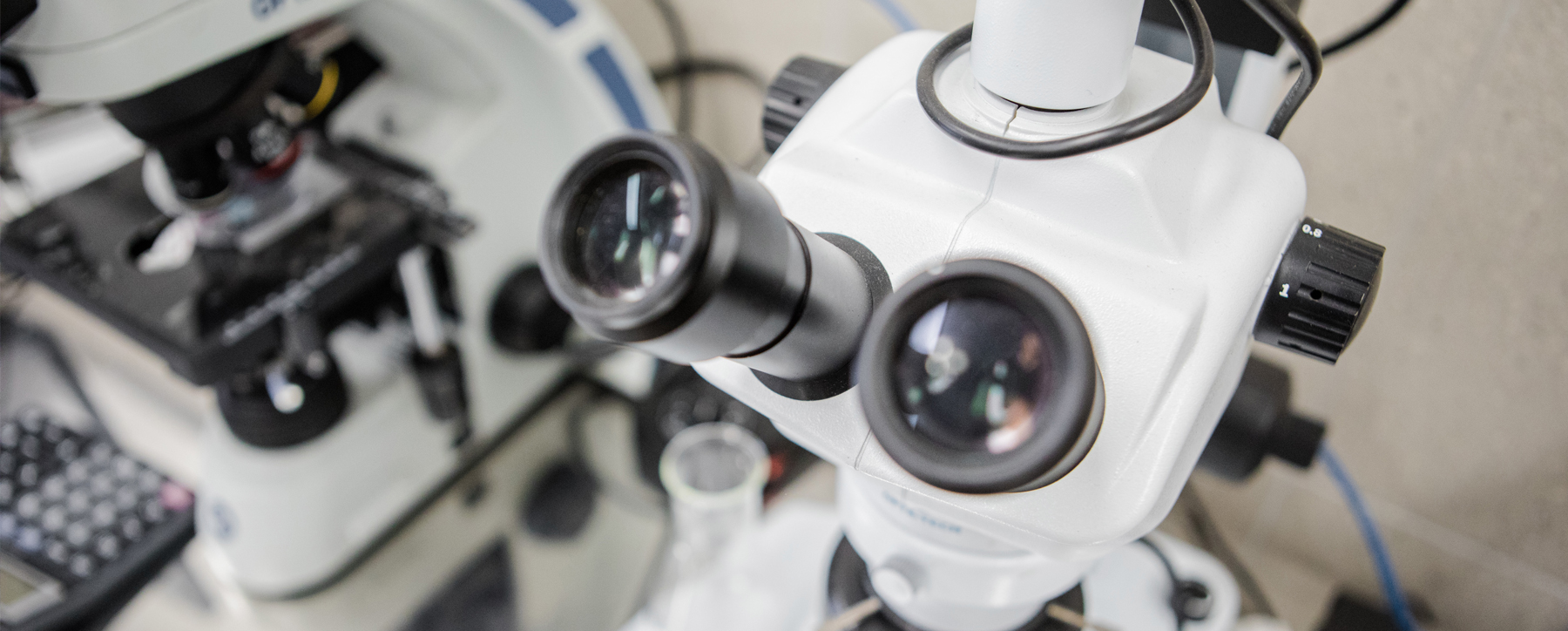
Traditionally innovative
The entrepreneurial traditions of the Ptaszek family have continued for six generations, and the gardening traditions for five, making them one of the oldest business families in Poland. The family business was founded by Jan Ptaszek, a miller, who obtained his industrial certificate in 1931. In supplying flour to all the households in the neighbourhood, he made use of a Diesel-powered flour mill, which was very innovative at that time. At some point he decided to purchase a hectare of waste land (class V-VI) located at the forest margin in the nearby Stężyca. Having cleared the land of stunted junipers and locust trees, he spread several tonnes of turf mixed with clay all over the area. Then, he laid down a few hotbeds and set up an orchard. In the 1950s Jan and his son Józef built two tunnel greenhouses and launched the first covered cultivation of tomatoes in the entire commune, together with chrysanthemums and carnations, which were very fashionable back then. In the 1960s they established their first proper growing house.
The family had been steadily expanding their business but the real breakthrough did not occur until 1977. This was when Jarosław Ptaszek, Jan’s grandson and business successor, who was then pursuing his fourth year of academic studies, took out a bank loan and built 2000 m2 of a Polish-type greenhouse, along with a grate-fired boiler room. These were initially used to grow tomatoes and freesia. After a couple of years, Jarosław and his wife Maria launched the cultivation of gerbera and anthuriums, considered more demanding plant species. In the 1980s they meticulously pursued their company development plans, doubling the greenhouse cultivation area.
Back in the times of the Polish People’s Republic, they began implementing innovative technological solutions, seeking to obtain top-quality products. They were the first producers in Poland to use energy-efficient curtains and a computer-controlled air-conditioning system manufactured by VanVliet, a Dutch company, which nowadays form part of standard professional greenhouse gardening equipment. In 1990 Jarosław and Maria built a Polish-type greenhouse with an area of 0.72 ha to grow tomatoes and cucumbers.
In 1997 the decision was made to build another Dutch-type greenhouse with an area of 1 ha, intended for anthurium cultivation. Flower seedlings were purchased from the Dutch company Anthura®. Along with the new investment, the Ptaszek family launched the promotion of a new company brand – JMP Flowers (the name being made up of the first letters of the owners’ first names and surname).
In 1998 JMP Flowers began rose cultivation. Due to the use of high-tech greenhouse-production methods, coupled with strict inspection of all aspects crucial to greenhouse and cultivation conditions, the roses distributed by JMP Flowers earned wide recognition both in Polish and foreign markets. Since then the Ptaszek family have regularly proven that Polish flowers invariably display outstanding quality in the most competitive European market conditions.
In 2000 Maria and Jarosław’s children joined the family business. The young generation, Agnieszka, Jacek and Michał, made every effort to prepare themselves to conduct business activities in today’s global village. Education has always been considered of the utmost importance in the Ptaszek family, being reflected in the activities pursued by both the company and its staff. All people working for JMP have graduated from the Warsaw School of Economics, having also pursued education in the Faculty of Law at the University of Warsaw, the SWPS University of Social Sciences and Humanities, the Warsaw University of Life Sciences, Erasmus Universiteit Rotterdam, the London School of Economics, the University of Vienna and ETH in Zurich. Jacek and Michał have additionally completed an accountancy course at Harvard University. Agnieszka and Jacek pursued postgraduate floristic studies at the Warsaw University of Life Sciences, while Michał has obtained a chief accounting officer’s licence and attended a number of specialised courses. Agnieszka has completed PhD economics studies at the Warsaw School of Economics. They jointly have a fluent command of five languages.
In 2002 JMP Flowers began constructing a new greenhouse with an area of 1.7 ha, intended for anthurium cultivation. With the most innovative greenhouse for cut anthurium production being established in Poland, the Lublin Region, this was a milestone in the history of Polish greenhouse gardening. Having constructed this high-tech greenhouse, JMP has become a global anthurium producer, rated first in Poland, third in Europe, and fourth in the world.
The construction of the first fully automated facilities for potted Phalaenopsis orchid production in 2010 marked another crucial step in the company’s history, also setting a new key development direction for JMP Flowers. The mystery, beauty and magic of orchids have truly enchanted not only the Ptaszek family themselves, but also millions of owners of this unique plant grown in Stężyca.
The construction of Europe’s largest greenhouse for Phalaenopsis production in a single location, providing a cultivation area of over 10 ha, will be completed in Q3 2017. It will also be one of the most innovative facilities intended for orchid cultivation in the world.
Its innovative character results from the fact that during the production cycle of every single orchid, which lasts 11 months, the plant undergoes a number of climate stages which differ in terms of moisture, temperature and watering intensity, in order to accurately reflect the sub-tropical climate which the orchid comes from. Moreover, the facility is equipped with robots to sort out fully grown plants, which identify the budding life-cycle, the number and size of buds and the plant height, using specially designed cameras.
The glass cultivation plant, encompassing 17 ha, also comprises a well-developed technical infrastructure which makes the production process self-sufficient in terms of electricity (lighting) and heating consumption. The company has its own co-generation system. Three units installed in JMP Flowers facilities are equipped with the CodiNOx system, with all engines being connected to the greenhouse light intensity steering system. The solutions applied are also eco-friendly, as the exhaust fumes produced in power plants are cleaned by the CodiNOX system by removing trace quantities of heavy metals and carbon monoxide. Once treated, the exhaust fumes (containing pure CO2) are transported to all plants grown in the greenhouses, which transform them into oxygen released to the air.
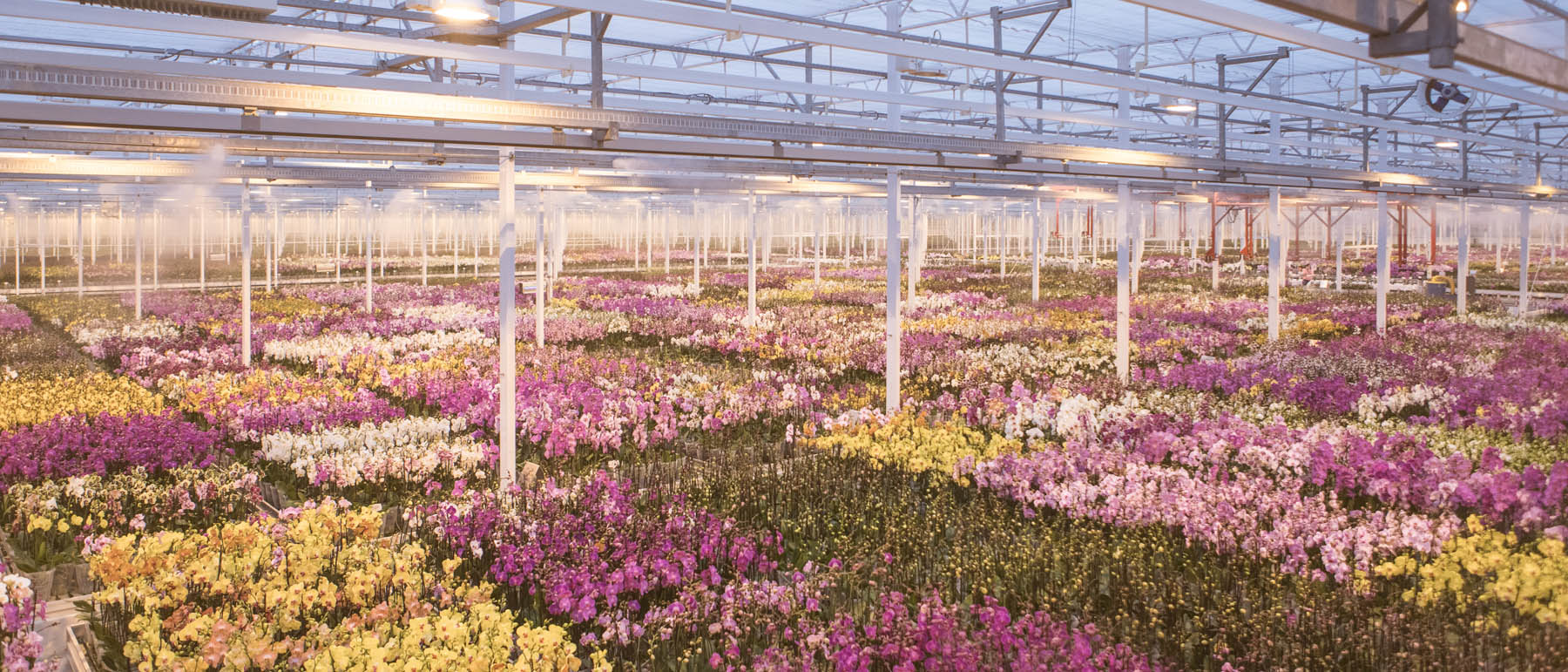
Awards & distinctions
In recognition of the company’s exceptional achievements in promoting the Lublin Region, both in Poland and abroad, the Marshal of the Lubelskie Voivodeship granted JMP Flowers the honorary title of Ambassador of the Lubelskie Voivodeship 2003.
- In 2003 Nic van der Knaap, owner of Anthura®, named his newest anthurium “Marysia” (after Jarosław Ptaszek’s wife). This was one of the greatest successes of JMP Flowers, reflecting the respect and recognition expressed by the Dutch masters of floriculture. “Marysia” is the first yellow anthurium variety in the world.
- In 2005 JMP Flowers, as the first Polish enterprise taking part in the prestigious German fairs BUNDESGARTENSCHAU, received three gold and three silver medals for its exceptional flowers.
- In 2008 Jarosław Ptaszek received the Exemplary Gardener (Polish: Wzorowy Ogrodnik) Award.
- In 2012 during the Lublin “Eden” Fairs, the Bombastic ramal rose grown by JMP Flowers received the Product of the Year Title.
- In 2014 Jarosław Ptaszek reached the final stage in the competition for the Jan Wejchert award granted by the Polish Business Council, in the “Vision & Innovativeness” category.
- In 2015 Jarosław Ptaszek received the “Luminatus” Innovation Award from Bloomberg Businessweek Polska.
- In 2016 a group of independent European experts recognised the quality of the JUMULIA rose cultivated by JMP Flowers by giving it the world’s top quality grade.
Gallery
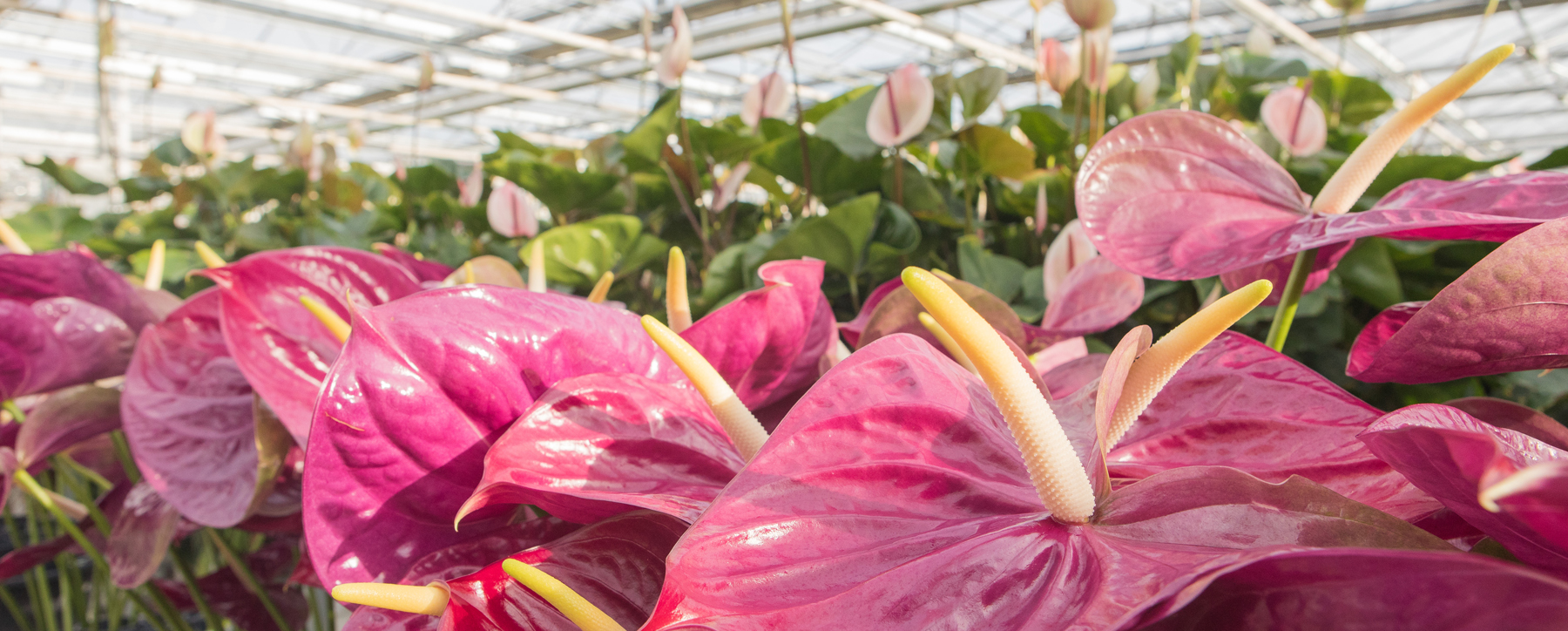
Social activities
It is worth noting that JMP Flowers has earned a name not only for flower production but also for respecting the family heritage and the Stężyca Land, reflected by deep involvement in the local community’s life and development. In 1999 Jarosław Ptaszek, acting as a sponsor and President of the Social Support Committee for Physical Culture, contributed to constructing a multi-functional basketball, volleyball and tennis pitch with an artificial grass surface at the Maria Konopnicka Primary School in Stężyca.
His other social activities have included providing financial support to the local football team, which Stężyca residents are truly proud of, as well as rebuilding the Stężyca sports stadium, which is one of the most eye-pleasing facilities of its kind in the Lubelskie Voivodeship.
Jointly with his family and common land owners, Jarosław Ptaszek has organised and provided financial support to a project involving the construction of the Educational and Sports Centre in Stężyca. The newly constructed facilities have offered convenient conditions to study and practise sports to children and young people residing in the Stężyca commune.
Since 2005 Jarosław Ptaszek has performed the honourable function of President of the Stężyca Friends Association. During that period he has succeeded in engaging Stężyca residents in diverse social activities implemented as part of the “Vistula Backwater – Active Recreation in Stężyca” project, having demonstrated his own involvement on a voluntary basis.
Since 2013 Jacek Ptaszek, acting on behalf of the Management Board of the Stężyca Friends Association, in cooperation with the BGŻ Foundation, has initiated and managed the English Club project. Each year the project provides 50 primary-school and junior-high-school students from Stężyca with an opportunity to attend a free English-language course.
Jarosław Ptaszek has also performed the function of Head of the Investment Section of the Stężyca Friends Association, closely cooperating with the Architectural and Supervision Inspector, and supervising the work performed by the General Contractor in connection with building the Wyspa Wisła (Vistula Island) recreational complex. He currently holds the position of Head of the Economic Section of the Stężyca Friends Association, supervising the business activities of Wyspa Wisła. This investment, worth over PLN 20,000,000, is a perfectly organised recreational park covering an area of over 23 hectares. It is the largest investment of its kind in Poland, implemented to date by a public-benefit institution. The park has provided jobs for 16 people and has provided excellent active recreation and relaxation conditions, to both Stężyca residents and visitors, along with good quality catering. Wyspa Wisła has become famous for its numerous artistic and cultural events, including the Wyspa Wisła Regaee Festival, the Wisła Gospel Festival, Stężyca Triathlon, the JMP Flowers Tennis Cup and several editions of the Flower Show organised jointly with a school and run by Ms Mariola Miklaszewska. Such initiatives also reflect the true passion for sports and music in the Ptaszek family.
In recognition of his involvement, Jarosław Ptaszek was awarded the Gold Cross of Merit by President Aleksander Kwaśniewski, and the “Merited for Agriculture” Medal. He has also received the title of “Merited for the Stężyca Land” which is the highest distinction a local community can award. The Stężyca Friends Association, led by its President, sets a positive example of shaping a civil society in Poland.
